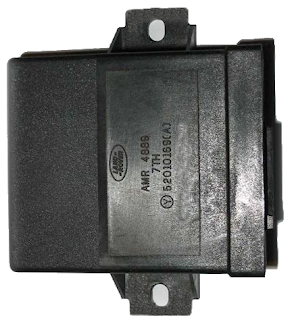

FTDI board goes to 3G-6210n Pins
GND goes to pin 3
TX goes to pin 2
RX goes to pin 4
I used my Ubuntu 12.04 machine and connected the Sparkfun FTDI board to one of the USB ports. I checked using the command dmesg and found the device was defined as /dev/ttyUSB0. I started minicom a terminal program using the command minicom -D /dev/ttyUSB0.
I set the Com port to 38400 baud 8N1 = 8 bits, no parity and 1 stop bit. No hardware or software flow control is selected on minicom.
I then powered on the 3G-6210n and boot messages appeared on the terminal window of minicom. It definitely is running Linux see messages below while it booted. Initial things I noticed 32MB RAM, 4MB Flash, 200MHz Processor
U-Boot 1.1.4 (Oct 9 2009 - 17:38:59)
U-Boot code: 00000000 -> 00019528 BSS: -> 0001E478
CPU Clock: 200 MHz
1.8V Vdd Output: 1.793
2.5V Vdd Output: 2.531
RAM Configuration:
Bank #0: 00000000 32 MB
Flash Manufacturer: MXIC
Flash Device: MXLV320CB(4MB)
Flash: 4 MB
*** Warning - bad CRC, using default environment
In: serial
Out: serial
Err: serial
Hit any key to stop autoboot: 0
## Starting application at 0x10040000 ...
Uncompressing Linux................................................................................... done, booting the kern.
Linux version 2.6.16-star (root@vance.localdomain) (gcc version 3.4.6) #1412 Fri Jun 11 17:05:56 CST 2010
CPU: FA526id(wb) [66015261] revision 1 (ARMv4)
Machine: STAR STR9100
Memory policy: ECC disabled, Data cache writeback
CPU0: D VIVT write-back cache
CPU0: I cache: 16384 bytes, associativity 2, 16 byte lines, 512 sets
CPU0: D cache: 16384 bytes, associativity 2, 16 byte lines, 512 sets
CPU clock at 200MHz
AHB clock at 100MHz
APB clock at 50MHz
Built 1 zonelists
Kernel command line: root=/dev/mtdblock3
PID hash table entries: 256 (order: 8, 4096 bytes)
Dentry cache hash table entries: 8192 (order: 3, 32768 bytes)
Inode-cache hash table entries: 4096 (order: 2, 16384 bytes)
Memory: 32MB = 32MB total
Memory: 29788KB available (2252K code, 251K data, 100K init)
Mount-cache hash table entries: 512
CPU: Testing write buffer coherency: ok
NET: Registered protocol family 16
PCI clock at 33M
PCI: bus0: Fast back to back transfers disabled
PCI Bridge found
PCI map irq: 00:00.00 slot 0, pin 1, irq: 0
SCSI subsystem initialized
usbcore: registered new driver usbfs
usbcore: registered new driver hub
Bluetooth: Core ver 2.8
NET: Registered protocol family 31
Bluetooth: HCI device and connection manager initialized
Bluetooth: HCI socket layer initialized
squashfs: version 3.4 (2008/08/26) Phillip Lougher
Initializing Cryptographic API
io scheduler noop registered
io scheduler deadline registered (default)
***********Init LED Driver*****************
Init GPIO Interrupt
***********Init LED Driver Finishing*****************
LED & GPIO & LAN Status Driver LED_VERSION
GPIO interrupt handler install ok.
Serial: 8250/16550 driver $Revision: 1.90 $ 1 ports, IRQ sharing disabled
serial8250: ttyS0 at MMIO 0x78000000 (irq = 10) is a 16550A
VLAN0_VLAN_TAG: 0
PPP generic driver version 2.4.2
PPP BSD Compression module registered
PPP MPPE Compression module registered
NET: Registered protocol family 24
rdm_major = 254
Uniform Multi-Platform E-IDE driver Revision: 7.00alpha2
ide: Assuming 33MHz system bus speed for PIO modes; override with idebus=xx
STR9100 NOR Flash: Found 1 x16 devices at 0x0 in 16-bit bank
Amd/Fujitsu Extended Query Table at 0x0040
number of CFI chips: 1
cfi_cmdset_0002: Disabling erase-suspend-program due to code brokenness.
Creating 5 MTD partitions on "STR9100 NOR Flash":
0x00000000-0x00040000 : "ARMBOOT"
0x00040000-0x001a0000 : "Linux Kernel1"
0x001a0000-0x003e0000 : "ROOT FS1"
0x003e0000-0x00400000 : "Configs"
0x00040000-0x003e0000 : "Upgrade"
block2mtd: version $Revision: 1.30 $
usbmon: debugfs is not available
str9100-ehci str9100-ehci: str9100-ehci
str9100-ehci str9100-ehci: new USB bus registered, assigned bus number 1
str9100-ehci str9100-ehci: irq 24, io mem 0xcc000000
str9100-ehci str9100-ehci: USB 0.0 started, EHCI 1.00, driver 10 Dec 2004
usb usb1: Product: str9100-ehci
usb usb1: Manufacturer: Linux 2.6.16-star ehci_hcd
usb usb1: SerialNumber: str9100-ehci
usb usb1: configuration #1 chosen from 1 choice
hub 1-0:1.0: USB hub found
hub 1-0:1.0: 2 ports detected
ohci_hcd: 2005 April 22 USB 1.1 'Open' Host Controller (OHCI) Driver (STR9100)
str9100-ohci str9100-ohci: str9100-ohci
str9100-ohci str9100-ohci: new USB bus registered, assigned bus number 2
str9100-ohci str9100-ohci: irq 23, io mem 0xc4000000
usb usb2: Product: str9100-ohci
usb usb2: Manufacturer: Linux 2.6.16-star ohci_hcd
usb usb2: SerialNumber: str9100-ohci
usb usb2: configuration #1 chosen from 1 choice
hub 2-0:1.0: USB hub found
hub 2-0:1.0: 2 ports detected
usb 1-1: new high speed USB device using str9100-ehci and address 2
Bluetooth: HCI USB driver ver 2.9
usb 1-1: Product: 802.11 n WLAN
usb 1-1: Manufacturer: Ralink
usb 1-1: SerialNumber: 1.0
usb 1-1: configuration #1 chosen from 1 choice
usbcore: registered new driver hci_usb
u32 classifier
Perfomance counters on
Netfilter messages via NETLINK v0.30.
NET: Registered protocol family 2
IP route cache hash table entries: 512 (order: -1, 2048 bytes)
TCP established hash table entries: 2048 (order: 1, 8192 bytes)
TCP bind hash table entries: 2048 (order: 1, 8192 bytes)
TCP: Hash tables configured (established 2048 bind 2048)
TCP reno registered
ip_conntrack version 2.4 (256 buckets, 2048 max) - 240 bytes per conntrack
ctnetlink v0.90: registering with nfnetlink.
ip_tables: (C) 2000-2006 Netfilter Core Team
ipt_recent v0.3.1: Stephen Frost
ClusterIP Version 0.8 loaded successfully
arp_tables: (C) 2002 David S. Miller
TCP bic registered
NET: Registered protocol family 1
NET: Registered protocol family 17
Bluetooth: L2CAP ver 2.8
Bluetooth: L2CAP socket layer initialized
Bluetooth: BNEP (Ethernet Emulation) ver 1.2
Bluetooth: BNEP filters: protocol multicast
VFS: Mounted root (squashfs filesystem) readonly.







